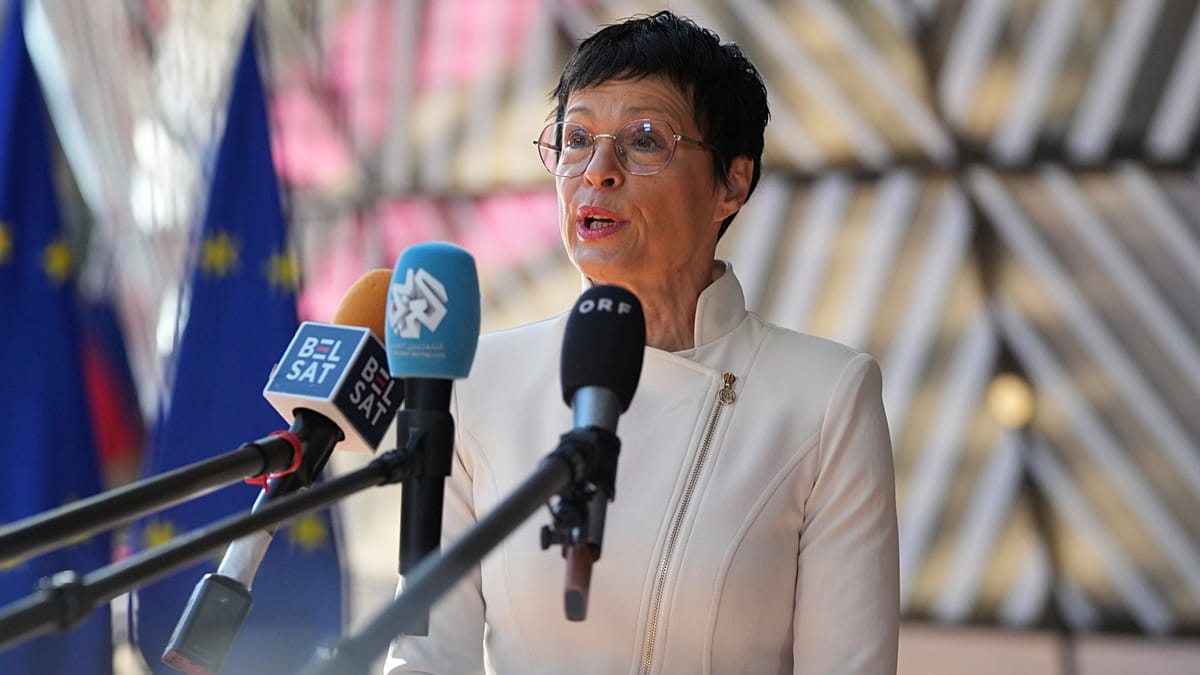The EU has learnt from its mistakes with the UK and Georgia and is now prepared to be “more assertive” including by investing in candidate countries to counter fake narratives, European Commissioner for Enlargement Marta Kos said.
In a group interview on Tuesday in which Euronews took part, Marta Kos said 2025 marked a departure for the way the European Commission approached enlargement, notably because “it was the first time that we invested resources, we have invested men and women power to help fend off foreign malign interference”.
“This included for the first time the deployment of the EU’s rapid hybrid response team,” she added.
The beneficiary was Moldova, whose bid to become an EU member state was launched just weeks after Russia rolled its tanks into Ukraine in its full-scale invasion in early 2022.
The country includes the pro-Russian breakaway territory of Transnistria which makes Moldova particularly vulnerable to hybrid attacks.
Moldovan President Maia Sandu had warned ahead of parliamentary elections held last month that Russia was spending “hundreds of millions of euros” to sway the vote away from pro-European forces.
The EU’s rapid hybrid response team was sent to help counter that. Sandu’s party won a landslide victory.
‘We have been better’
For Kos, this is proof the EU is finally learning from its mistakes: “When the UK decided to have a referendum, the attitude of the European Union has been it’s their internal affair, we don’t get involved. We didn’t even say: ‘Please could you stay?'”
“Like Georgia, where we already knew that the interference from Russia is high, we didn’t help,” Kos explained.
Additionally, she said this shows that when it comes to disinformation, the EU is finally taking Russia to task.
“They have been really doing a lot of harm, but I’m pleased to say that we have been better,” the enlargement Commissioner said.
“We have studied their narratives, the Russian narratives well, we turned them around and use them in support of Europe. And in my opinion, this strategic communication, we should be more assertive to defend our offer and in a logic closer to domestic dynamics in our candidates.”
“You know, once they get the status of candidate, it is also our responsibility to help them,” she said.
The EU’s enlargement chief will next week unveil the Commission’s annual review of the progress of candidate countries in the accession process.
Moldova is set to receive a gold star for its efforts. Yet despite the Commission endorsing the opening of negotiations, progress has stalled for months as its bid is unofficially coupled with Ukraine’s. Meanwhile, Kyiv’s accession progress is being blocked by Hungary.
‘Can we deliver as the EU?’
Montenegro and Albania are also expected to be praised for their continued efforts towards European integration.
Both countries expect to be full-fledged EU members before the end of the decade, with Montenegrin President Jakov Milatović urging the bloc earlier this month during a summit of leaders in Copenhagen to start drafting the accession treaty.
Overall, Kos, who took office in December 2024, said “2025 was actually a good year for enlargement” with “more progress than in the last 15 years”. She nonetheless warned that “the road (ahead) has some hurdles”.
“Next year, 2026 will have higher stakes with one central question: can we deliver as the EU?,” she said.
Much will depend on EU leaders whose unanimous backing is required to approve each new step in the accession process.
A plan by European Council President Antonio Costa to tweak the rules by allowing the opening of clusters to be decided by a qualified majority failed to gain traction last month.
The EU is also mulling ideas, including gradual integration — whereby steady progress would be rewarded with access to funding and programmes that could be yanked back at any time in case of backsliding — and possible safeguards to ensure continued unity.
One of those safeguards under consideration, according to diplomats speaking to Politico, would be to prevent new members from exercising full veto rights.
Read the full article here


